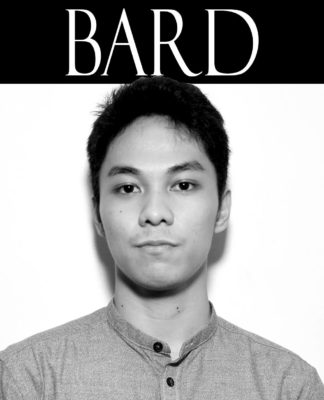THREE German professors arrested at the Thomas Aquinas Research Complex last Feb. 15 after being found without work visas have been released on bail pending deportation proceedings, the Bureau of Immigration (BI) said.
BI spokesperson Ma. Angelica Pedro said the Germans were released to their lawyer in recognizance in exchange for the bail bond.
Before the Germans were granted probationary release last Feb. 17, they were detained at the BI Warden Facility in Bicutan, which is standard operating procedure for foreigners with a pending review for summary deportation.
“As soon as they are deported, they will be put in the blacklist, unless they file for a lifting,” Pedro told the Varsitarian in a phone interview.
The German nationals, who all held tourist visas, were identified as Eric Swehla, 45; Hermann Siebdrat, 54; and Klaus Peter Neuhrich, 73.
Pedro said the Germans were arrested after Herbert Joseph Vogt, a Swiss national, tipped the BI about their illegal “gainful employment” as part-time lecturers in the University since last year.
She noted that the Germans clearly committed a violation when they did not apply for a nine-day visa granted to foreigners who wish to engage in employment within the country. “They don’t have that (visa) but they are teaching German-language classes [in UST],” she said.
According to Vogt's affidavit, Swehla and Siebdrat were lecturers at the first Philippine-German dual bachelor program offered by UST, under the College of Commerce and Business Administration, and the International University of Cooperative Education (IUCE) in Germany. Students enrolled at the UST-IUCE program were being charged P20,388 per month.
Swehla was president of IUCE while Nuehrich became director the German university's office in Manila last August.
The Varsitarian sought comment from Commerce Dean Mary Hildence Baluyot but she declined, saying the matter had “already been resolved.”
Vogt also told the BI that Swehla and Siebdrat had been visiting the country as tourists almost every month.
Under an agreement between the Philippines and Germany, German citizens do not need a visa to visit the Philippines for up to 21 days as long as their passports are valid for at least six months at the date of entry to the country. If a German citizen wants to stay longer than 21 days without leaving the Philippines, he or she may apply for a visa extension.
What the German tourists did, Pedro said, was to conduct their business within the prescribed 21-day visa-free stay, leave the country after 21 days, and re-enter again as tourists.
IUCE’s brochure given to Commerce students stated that the program provides advantages such as having “visa assistance for studying and working in Germany,” internship and employability in German companies, scholarships and salaries granted by international companies during practical phases of studies, and education contracts with international companies providing “tuition (partly or full), if you sign to stay” in Germany for some years.
It also said that one program in IUCE will provide two educational degrees— the “Philippine bachelor degree of the major you chose for studying (at UST) and in addition, the German ‘Bachelor of Arts (BA) in International Business Management.”
Germany’s dual education system is well-known worldwide for its traditional training at the vocational and technical academy level. Half of the training takes place in classroom lectures while the other takes in the form of practical on-the-job training.















